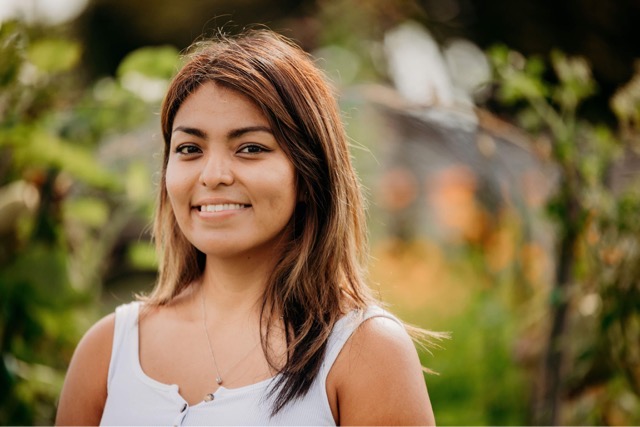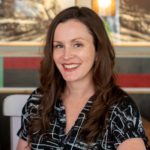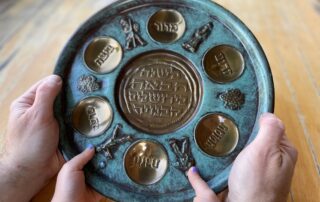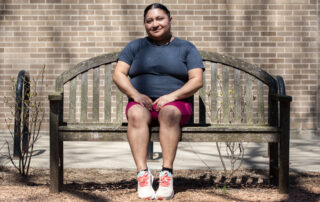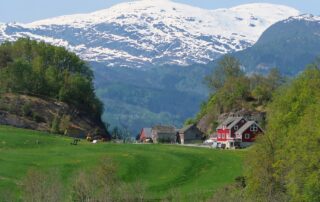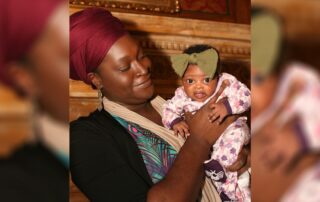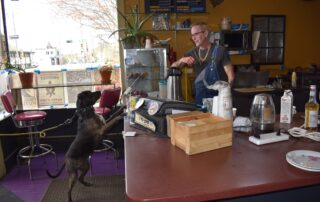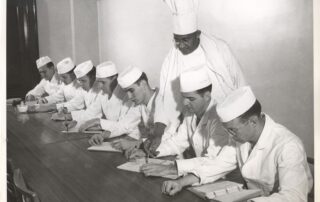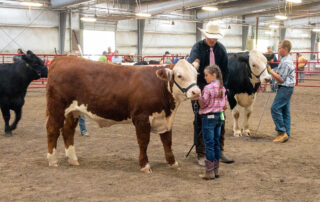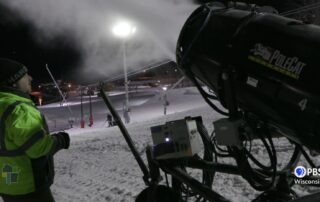Cinthia Téllez Silva moved to the United States from Mexico on her 12th birthday. It was also St. Patrick’s Day, a new holiday for Téllez Silva.
“My cousin went to pick us up from the airport and she pinched me. This was the big welcome?” Téllez Silva said laughing. “She’s like, ‘Dónde estás tú verde’ and I’m like, ‘Why? What’s St. Patty’s Day?’ I don’t know anything!”
After living in California, her family eventually moved to Beloit, Wisconsin and settled in Janesville, Wisconsin. That’s where Téllez Silva went to high school. She went on to study and play soccer at University of Wisconsin- Rock County and graduated from University of Wisconsin- Milwaukee with a communication degree. While there, Téllez Silva advocated for undocumented college students like herself.
Now, Téllez Silva works at Sixteenth Street Community Health Centers in Milwaukee as the Healthy Schools Program coordinator. Her long-term goal? To make the city healthier for everyone.
Téllez Silva’s story is being featured in the Wisconsin Humanities project, “Immigrant Journeys From South Of The Border,” which featured a traveling exhibit across Wisconsin through 2020. In 2021, Wisconsin Humanities is hosting a series of virtual conversations about immigration. In her story for the project, Téllez Silva talks about the role mentors have played in her life and how they helped her through school and her career.
WPR’s Maureen McCollum recently caught up with Téllez Silva at South Shore Park in Milwaukee to talk about her dreams and how she’s helping make Milwaukee a healthier city for its residents.
(This interview has been edited for brevity and clarity.)
Maureen McCollum: Can you tell me more about your job at Sixteenth Street Community Health Centers?
Cinthia Téllez Silva: So my day to day job right now — I do a lot of different videos and that includes recording and also editing them for our Healthy Choices Department. I’ve been taking on a special project called “Explorando Milwaukee” that aims to highlight a lot of the different green areas, trails, hidden spots where people can go and walk or exercise in or simply have a picnic at, like, South Shore Park.
The other one is really helping support the “Latinos por la Salud” Facebook page. It’s a group that the clinic and our community supports and is made up of residents. They have been taking on the project of cooking and showing recipes on our web site. I edit some of those, not all of them, because [laughing] it’s really hard to edit videos. That’s a skill I’m developing.
I help support my other two colleagues: Delia, who does nutrition education with families, and Patty, who does more of the community advocacy, especially with “Latinos por la Salud” page. That includes the Wednesday walking and biking clubs. I’m very fond of those because, on Wednesdays, I get to ride with a lot of teenagers, youth from the community. So we’ve been discovering different senderos, different trails like the Kinnickinnic.
MM: Are you seeing a lot of new people on the trails or in the parks?
CTS: Oh, yes. We’re doing these videos so people can know. But, I think once people that haven’t seen them come… it just makes the whole project and all those hours worth it. You see more people becoming aware, like, “Oh, I didn’t know this place was here and I’ve been living here like my whole life!”
I’ve been hearing some people speak Spanish all around me more than before, so I think that’s a good sign that people are trying to get out there more.
So, all of that to say it’s a very multi-dynamic job that I do. I love it. It keeps me grounded. It keeps me in shape, which is great. And it gets me healthy.
MM: Has this type of work always been your life’s passion or did you surprisingly fall into it?
CTS: I always knew I wanted to be in a community health setting.
I have always been very drawn to the health of somebody like myself. I had a heart murmur when I was in high school. The only reason I knew was because I had to get a physical in order to join the soccer team. It wasn’t something to worry about. They told me, “You’re going to sweat a little bit more than usual, but you’re fine.”
But sometimes when I when I had those interactions…being in Janesville, you didn’t really see another Latina woman, for example, talking to me or to my mom and explaining the process. Okay, there’s an exam that needs to be done. Okay, we got the exam, but I don’t know what it’s for. Seeing that lack of an explanation in some cases — sometimes that includes like the language —it made me aware that we need more people doing this.
MM: When you’re working with families or individuals during the pandemic, is the emphasis essentially on getting out and moving and thinking about healthy choices? Are there other things you’re thinking about, as well?
CTS: Yeah, absolutely. You know, all of that is great. But, I think the purpose behind it is, “How do we change systems and how do we transform systems?”
There’s a lot of social change around us. I can’t be at every demonstration and I know I can’t be at every single thing that needs my support. But at the same time, I said, “What within my job or within my power can I change in a way that I can actually control?”
Even now, with my role changing, I still work with schools. How does that look, especially now that everything has gone virtual, right? I’ve been in a few conversations with mentors from the community and youth coordinators that have said, “Let’s get together and try to see what would be the best way to figure this out.” Maybe going to the schools is no longer an option, but maybe bringing [students] out to the park is? Bring them out to an area where they can just be themselves and have space for them. Maybe that’s the way to go? Having those conversations and building up to the actions — I think that’s what I want to focus my energy on.
I’m really excited about a project that just got approved. There’s a collaboration we’re going to start with Ayuda Mutua MKE. It’s an all-volunteer run pantry, but they deliver food to residents and residents can pick up their food. “Latinos por la Salud” members are going to be part of the project. They’re going to be making recipe videos that have the food. They’re going to help at the pantry and learn how to deliver properly. It’s community helping community…like a better quality of life.
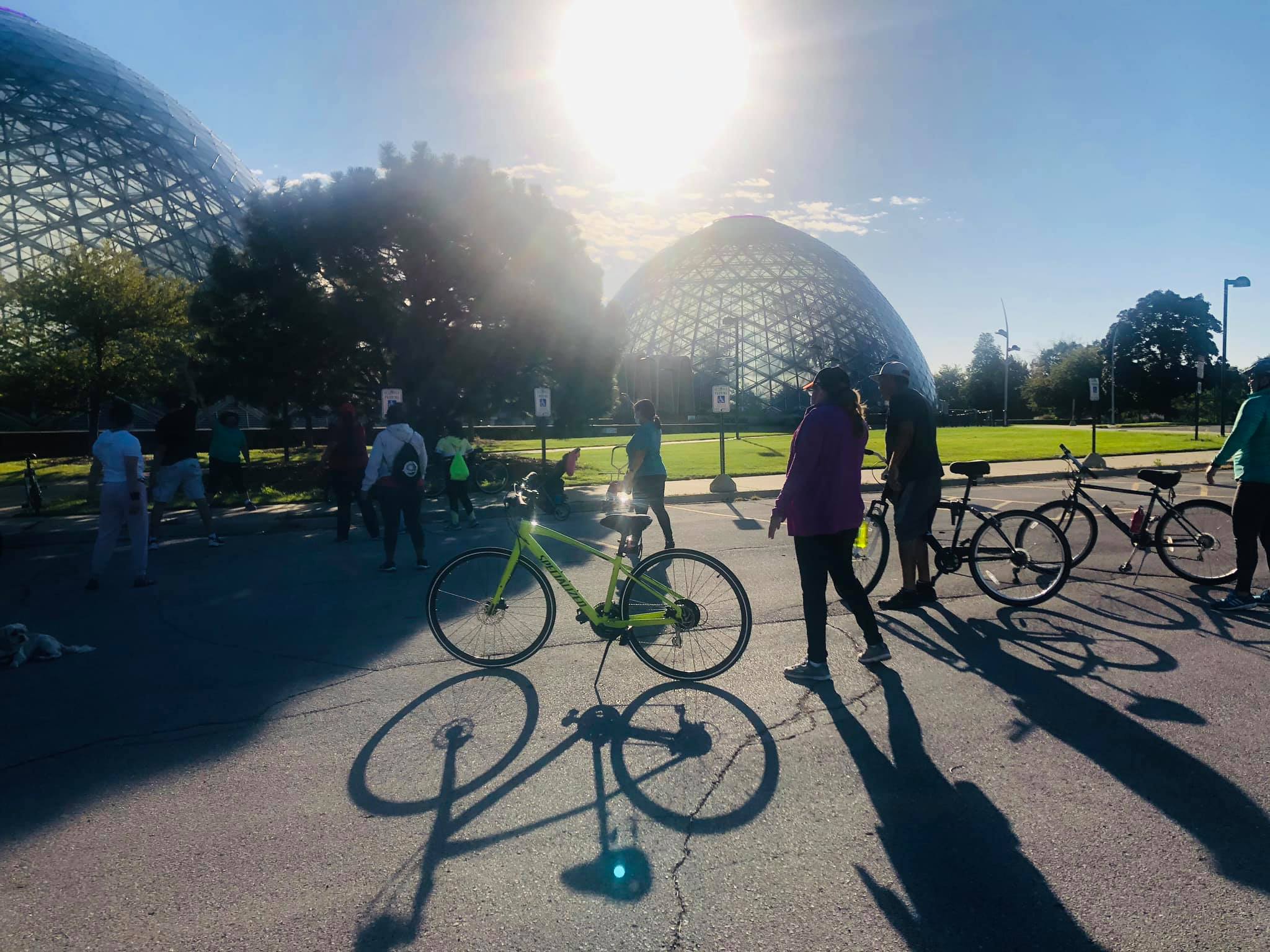
Members of “Latinos por la Salud” gather outside the Mitchell Park Domes in September 2020. (Courtesy of the “Latinos por la Salud” Facebook page)
MM: Things are rough for a lot of people right now, but it sounds like you’re looking at the silver lining and trying to come together with different people to make it better for everyone.
CTS: Yeah, I think that’s the biggest challenge. When we think of everyone, who do we really think about?
I think a lot of the times with our communities, it’s hard to grasp that idea because many parents are working two to three jobs. There are so many interests at the table. I think one of those main interests should be, “How are we advocating for more people to be in those places? How is a specific thing that the organization wants to do going to affect the people?”
Also, how do we bring in more people after us? Because we’re not going to be there forever.
MM: So who are the core people you’d like to work with?
CTS: That’s a hard question. I’m very set on youth. I’m very set on bringing youth to the light because we’ve seen that they can move things. We’ve seen that they hold the power of a lot of things.
When I think of the overall picture — I want to bring everyone — but focus on those people who have not been there before. I think a lot of the times, our recent immigrants or refugees have left a big part of themselves — who they are — to be alive, essentially. Not even to be in their living situation, but to be alive. At the end of the day, that’s what everybody wants to do, right? We want to live. I think that’s a core value that sometimes we have a hard time understanding.
I think my purpose is really to look at the health of a community or the city, in this case, Milwaukee. I love Milwaukee. I’m very appreciative of everything that it has given me. But I also know there’s so much work to do and I know there are issues that don’t make Milwaukee the best city.
That’s a dream job for me right now. I think [the job] has amplified my idea of the health of the community on the south side, but I’m looking at the whole city. That is prompting me into thinking, “Okay, what’s next? I don’t know, but I’m hopeful.”
